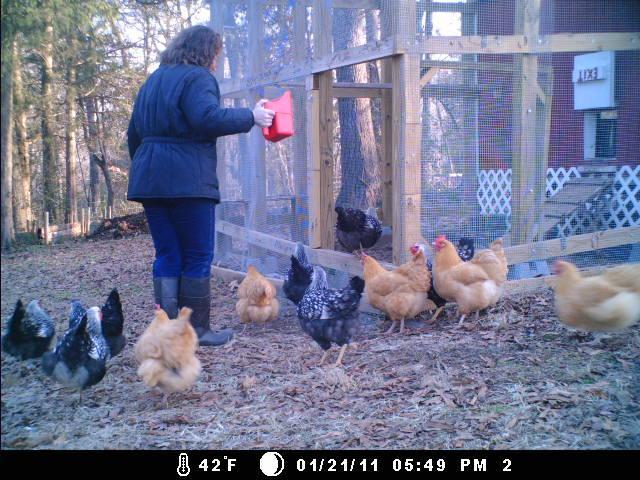I live in the Wilamette Valley on the Washington side, so I probably have the same climate as you. I would think that my chickens wouldn't be getting enough to eat just foraging. Even with the green grass and bugs, they are sure glad to get some grains- even in the wintertime.
(Yes folks our grass is green in the winter.)
I wouldn't just free range with no grains and seeds (sunflower seeds are great- the kind that comes sold as birdseed- black oil sunflower seeds) unless it was an emergency.
Mine free range every second or third day- BUT ----------
when they come back to the chicken yard in the evening, they go fill up on grains and seeds before roosting for the night.
That tells me that they wouldn't have been satiated without the official feed mix that I make them.
(Yes folks our grass is green in the winter.)
I wouldn't just free range with no grains and seeds (sunflower seeds are great- the kind that comes sold as birdseed- black oil sunflower seeds) unless it was an emergency.
Mine free range every second or third day- BUT ----------
when they come back to the chicken yard in the evening, they go fill up on grains and seeds before roosting for the night.
That tells me that they wouldn't have been satiated without the official feed mix that I make them.





